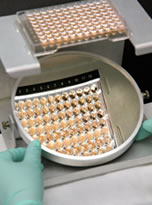Read and report vaccine reactions, harassment and failures.

Meningococcal disease is contagious, however direct personal or lengthy contact with a carrier is required for disease transmission to occur. Transmission can occur by kissing, sharing items such as silverware, drinking glasses, toothbrushes or lipstick, or by living in the same household as a carrier. Simply touching an object or being in the same room as a carrier will not result in disease transmission. N. meningitidis is a very fragile bacteria and does not survive very long outside of the body.
Between 10-20 percent of the population are asymptomatic carriers of N. meningitidis, the bacteria responsible for invasive meningococcal disease. Although asymptomatic carriers have no symptoms, they can potentially transmit the bacteria to others.
Living in the same household as a carrier or someone suffering from meningococcal disease does not necessarily place a person at high risk for developing meningococcal disease. Studies have shown that only 3-4 percent of household members contract a secondary case of meningococcal disease when a family member has been diagnosed with meningococcal disease. Secondary risk transmission generally occurs in only 2-4 cases per 1,000 household members.
Antibiotics are prescribed to treat meningococcal disease and to halt the transmission of meningococcal bacteria. The bacteria can be transmitted to others for up to seven days prior to initial symptoms, however an infected individual is no longer considered contagious after 24 hours of antibiotic therapy. Antibiotic treatment is also recommended in individuals who may have had close contact to a person diagnosed with meningococcal disease.
NVIC “Quick Facts” is not a substitute for becoming fully informed about Meningococcal disease, meningitis and the Meningococcal vaccine. NVIC recommends consumers read the more complete information following the "Quick Facts", as well as the vaccine manufacturer product information inserts, and speak with one or more trusted health care professionals before making a vaccination decision for yourself or your child.



